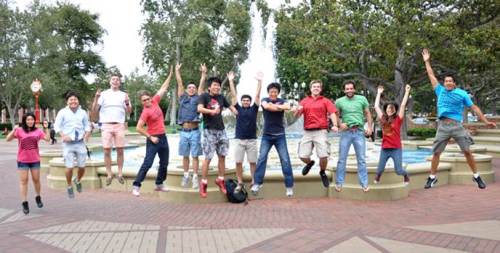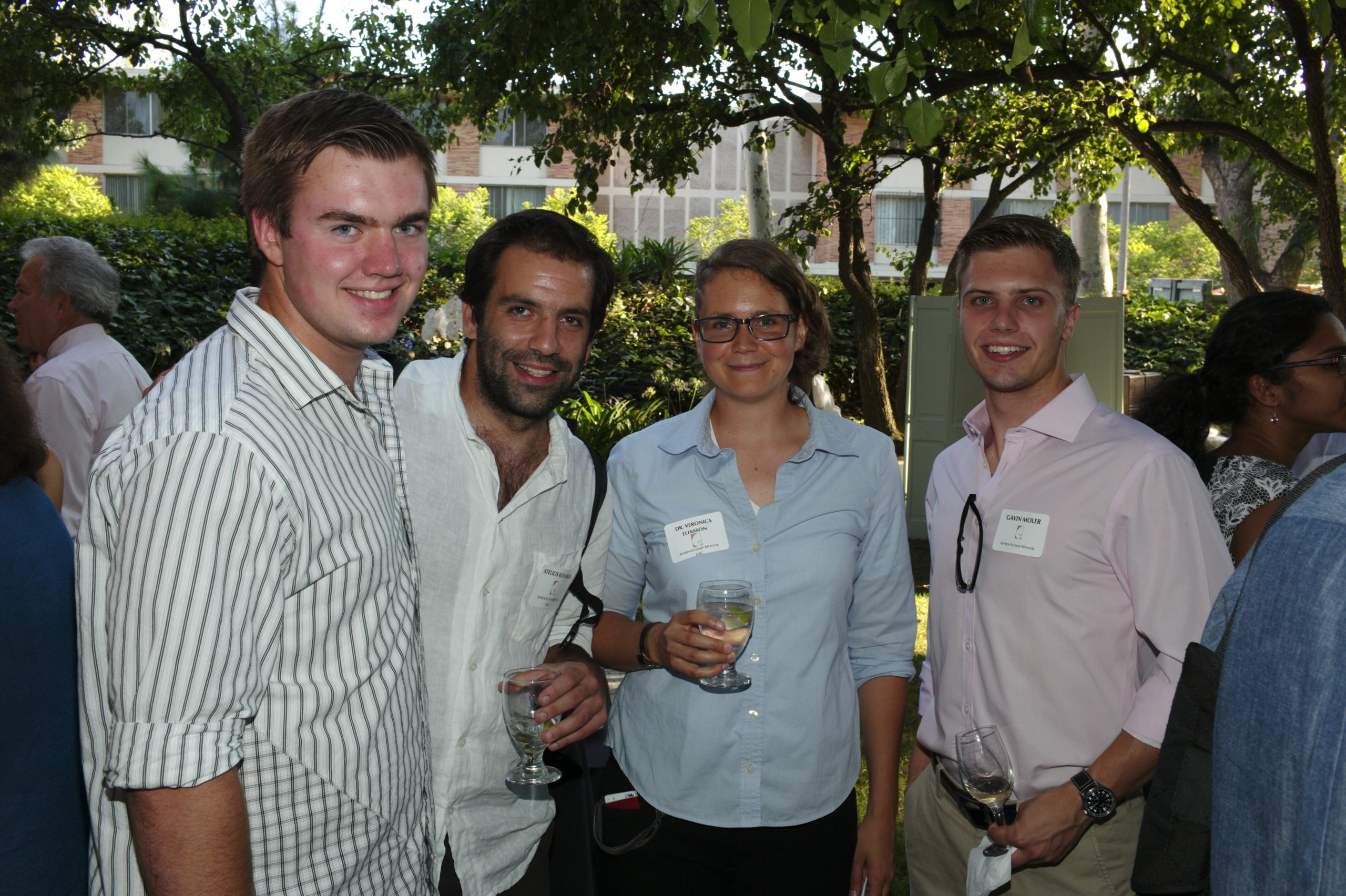
Dr. Veronica Eliasson
Assistant Professor, Department of Aerospace & Mechanical Engineering at University of Southern California
Education:
Ph.D., Mechanics, Royal Institute of Technology, Sweden
M.S., Mechanical Engineering, Royal Institute of Technology, Sweden
Research Interests:
Shock wave behavior in gases and liquids, shock wave focusing, fluid-solid interactions
For the last two summers, Dr. Veronica Eliasson has introduced high school students to shock wave research through IEA’s Apprenticeship Program. This program links gifted high school students from across the country with mentors like Dr. Eliasson who advance each participant’s skills through the application of knowledge and exposure to real world experiences. Dr. Eliasson, who will be joining us as an Apprenticeship Mentor again this summer, took some time to talk to us about herself and her experiences.
Describe your educational journey.
My dad always told me I should get a Master’s degree in some kind of engineering area. I kept saying no — but somehow I still ended up with a Master’s degree in Engineering. My dad was right, he knew I had the interest and background to do well in such a program and that there are plenty of opportunities to shape your career any way you like afterwards.
So, when I was 19 I moved to Stockholm to attend KTH (Royal Institute of Technology). I applied to a program in Vehicle Engineering only because of the way their brochure looked (perhaps not the best way to pick your undergraduate/Master program). It had pictures of trains, boats and cars, and I thought it would be very interesting to understand the physics behind how they work. The last year I went in a different direction and specialized in nuclear safety. I thought it was very fascinating to learn more about nuclear fuel plants, how they operate and how to keep them safe. My Master’s thesis was conducted in collaboration with a nuclear fuel company, and when I was done I knew I wanted to attend a PhD program to learn more, not necessarily about nuclear fuel, but something with fluid mechanics. I applied for a PhD position at the Mechanics Department at KTH with a Professor working on shock waves (something I knew very little about). I got the position, and it was the beginning of a very fascinating journey, learning about shock waves through experiments and numerical simulations. It was scary in the beginning not knowing there was a “right” answer at the end, that no one knew ahead of time what the results of the experiments would be. It was very different, and certainly more fun, than taking a course where the correct answers to all questions are displayed at the end of the book.
What are your hobbies? What do you do to re-energize yourself?
I really like sports. Since I became an Assistant Professor at USC, I have started practicing Muay Thai kickboxing, Jiu-Jitsu, and boxing. They are great sports to relieve stress, and you have to stay in the moment—you cannot worry about the past or the future. I also like bicycling, and we have about nine bikes at home at the moment. Southern California is great for road biking, mountain biking or just taking a chill ride on your fixie. Apart from sports, I like to explore new vegan restaurants and try new types of food. I also have a large collection of sneakers, and the nicest ones are displayed on shelves in my house.
Exercising is the best method for me to feel re-energized. Even a short run in the morning works if I have little time. If I’m at work and need to re-energize, I sometimes go buy a tea and then go to my lab to see how my students are doing. My students are so full of positive energy, and their new results, their new questions and their personalities make me believe I have the best job in the world.
What aspects of mentoring do you feel are most rewarding?
When students come back to me and tell me about them getting, for example, an internship they really wanted, or the job of their dreams, that makes me very happy. It is nice to see that what we teach students actually helps them to advance their careers, and it is always fun to hear about their next step in life. It is also rewarding to see students who have struggled with certain things move forward, overcome their struggles and become successful.

Thank you to Dr. Eliasson for taking the time to talk to us, and thank you so much for your commitment and contributions to IEA’s Apprenticeship Program!
IEA is currently looking for Mentors and accepting applications for Apprenticeship 2014 in Los Angeles. If you are a high school student interested in applying for Apprenticeship, visit the Apprenticeship page of our website. If you are interested in becoming a Mentor, please contact us at Apprenticeship@educationaladvancement.org.

